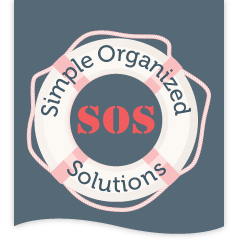 Planning to retire? Maybe you’re not quite there yet but you’ve been planning the financial component for quite a while. What about your time? Have you considered what you will do in terms of your time?
Planning to retire? Maybe you’re not quite there yet but you’ve been planning the financial component for quite a while. What about your time? Have you considered what you will do in terms of your time?
Certainly, finances are an essential piece to every retirement plan, but planning should not end there.
Consider this – you have been working a 9 to 5 job for 40 or more years, getting up at the same time, going through the same, or similar routine day in and day out. You may have had time off over the years from vacations, illness or injury, or maybe maternity leave. All of these situations have provided time off from your daily routine, and may have changed your schedule during and maybe after you return to work. But these short stints of time off don’t prepare you for beginning a new chapter of your life after you retire. You need a purpose, a reason to get out of bed every morning!
As you contemplate what you want to do with your time after you retire, understand that you are older and cannot do everything you did when you were younger. This understanding factors into physical and mental capabilities of the activities you would like to pursue. Whatever you do with your time, and that can change over the years, make sure you stay healthy both physically and mentally so you can live life to the fullest.
As you have heard time and again, staying healthy includes a balanced diet, and physical exercise. I would add mental exercise to add to the components of a healthy lifestyle. There are exercises you can perform to keep your mind sharp to potentially avoid cognitive decline.
Some activities and things to consider as you plan for what to do with your time after you retire, are shown below. As mentioned above, keep your physical and mental capabilities in mind as you research these ideas. A little bit of online research can help in your quest to include the healthy lifestyle component to your retirement plan.
Never stop learning:
According to an article from Harvard Health Publishing, ‘Challenging your brain with mental exercise is believed to activate processes that help maintain individual brain cells and stimulate communication among them. Many people have jobs that keep them mentally active, but pursuing a hobby, learning a new skill, or volunteering for a project at work that involves a skill you don’t usually use can function the same way and help improve memory.’
Pursue a hobby:
As mentioned above, pursing a hobby helps to keep you mentally active. It also helps with the physical aspect depending on the hobby. Some considerations for hobbies are, gardening, sports, travel, crafting, cooking, reading, all forms of art such as painting, sculpting, etc.
Volunteer:
Volunteering at church or a favorite charity can be very rewarding. It gives you a purpose and can provide the physical and mental activity to meet the healthy lifestyle component of your retirement plan.
Part-time job:
I have heard many people talk about being bored after they retire. Not everyone wants to volunteer or pursue a hobby. Some feel the need to go to a place of business on a regular basis and get a paycheck for their efforts. If this sounds like you, look for something to do on a part-time basis that suits your talents or interests.
Start a business:
Starting a business is another option. Find something you’re passionate about and do some research. Understand that it will take up a good portion of your time, and go back to your physical and mental capabilities at this time in your life. You don’t want to overwhelm yourself right out of the starting gate of your retirement.
What is your plan for your time after you retire?


